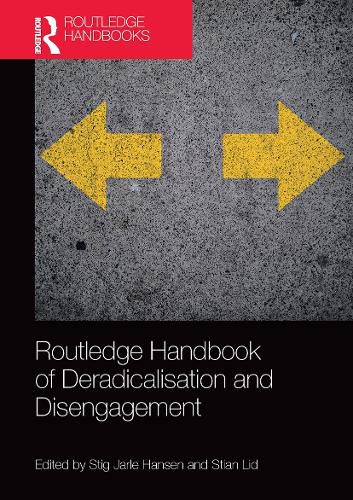Readings Newsletter
Become a Readings Member to make your shopping experience even easier.
Sign in or sign up for free!
You’re not far away from qualifying for FREE standard shipping within Australia
You’ve qualified for FREE standard shipping within Australia
The cart is loading…






The Routledge Handbook of Deradicalisation and Disengagement offers an overview of the historical settings, theoretical debates, national approaches and practical strategies to deradicalisation and disengagement.
Radicalisation and violent extremism are major global challenges, and as new and violent extremist groups and environments emerge, there is an increasing need for knowledge about how individuals physically exit these movements and how to change their mindset. Historically, much of the focus on these topics has been highly securitised and militarised; by contrast, this volume explores the need for more community-based and ‘soft’ approaches. The handbook includes discussions from both right-wing/left-wing political and religiously inspired deradicalisation processes.
The handbook is organised into three parts:
1 definitions, backgrounds and theories;
2 actors;
3 regional case studies.
This handbook will be of much interest to students, researchers, scholars and professionals of deradicalisation, counterterrorism, political violence, political extremism, security studies and international relations in general.
$9.00 standard shipping within Australia
FREE standard shipping within Australia for orders over $100.00
Express & International shipping calculated at checkout
The Routledge Handbook of Deradicalisation and Disengagement offers an overview of the historical settings, theoretical debates, national approaches and practical strategies to deradicalisation and disengagement.
Radicalisation and violent extremism are major global challenges, and as new and violent extremist groups and environments emerge, there is an increasing need for knowledge about how individuals physically exit these movements and how to change their mindset. Historically, much of the focus on these topics has been highly securitised and militarised; by contrast, this volume explores the need for more community-based and ‘soft’ approaches. The handbook includes discussions from both right-wing/left-wing political and religiously inspired deradicalisation processes.
The handbook is organised into three parts:
1 definitions, backgrounds and theories;
2 actors;
3 regional case studies.
This handbook will be of much interest to students, researchers, scholars and professionals of deradicalisation, counterterrorism, political violence, political extremism, security studies and international relations in general.